In loss to Mexico, U.S. beaten by the very skill it aspires to match
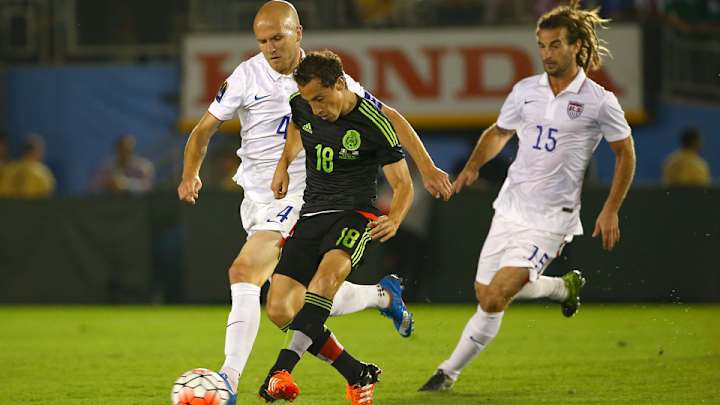
PASADENA, Calif.—Jurgen Klinsmann stepped off the dais in the large, dark press conference room on the Rose Bowl’s ground floor and was met at the door by his boss, Sunil Gulati. The U.S. Soccer Federation president hired Klinsmann in 2011 to overhaul the men’s national team program and, following Saturday night’s 3-2 overtime loss to Mexico, Gulati may remain one of the dwindling number of people who think the World Cup-winning striker can pull it off.
Gulati gave Klinsmann a sympathetic and reassuring pat on the back. His team had fought through the stifling Rose Bowl heat and two deficits to take Mexico to within a couple minutes of a shootout in Saturday’s gripping Confederations Cup playoff. The U.S. had displayed all the grit, hustle and resilience that have been its trademarks for so long. On many occasions, those qualities have made the difference against a Mexican team that can lack certain intangibles or somehow manages to field a squad that’s less than the sum of its parts. Klinsmann was 3-0-3 against El Tri as U.S. manager.
But on Saturday, those American attributes weren’t enough. Mexico was better. El Tri dictated the play, put the U.S. under pressure throughout the match and won deservedly thanks in part to two stunning goals that symbolized that difference in attacking quality between the two sides.
• WATCH THE GOALS: Chicharito | Cameron | Peralta | Wood | Aguilar
“We didn’t really have a hold of the game. We defended for long stretches,” forward Jozy Altidore said. “We just weren’t able to keep hold of the ball. They were able to dictate the game and just had us chasing, playing very deep … It’s difficult to play a team like that, playing that way for 120 minutes.”
Klinsmann has said since he was appointed that he wants his team to be the one that puts an opponent on its heels. That hasn’t been happening. Sometimes, like at the 2014 World Cup, the U.S. can chase a game but still find a way to get a good result. That’s been the national team’s hallmark. But other times, like at this summer’s CONCACAF Gold Cup or on Saturday, the Americans fell short. Some may believe it’s because of Klinsmann. Others, like Gulati, will argue that an inability to routinely win the possession battle and create more chances against a quality opponent—or the lack of consistent, game-breaking technical skill—is a problem endemic to American soccer. It’s the very reason Klinsmann was hired.
Mexico tops United States 3-2 in thrilling CONCACAF Cup
Klinsmann got the lineup right on Saturday and his team came ever so close. The effort was immense and the organization better than it’s been in recent outings. But as Altidore hinted, playing on your heels for most of 120 minutes is a sign that the other team is a bit more comfortable with the ball. And when the other team is more comfortable, it scores goals like Javier ‘Chicharito’Hernández’s opener and Paul Aguilar’s late game-winner.
“We knew that they were coming … so we said, ‘Let’s be as compact as possible there.’ But what we didn’t do well in the second half was simply to keep the ball,” Klinsmann said. “We ran a lot after we won a lot of balls and then, boom, we couldn’t combine and we couldn’t calm the game down enough … We should have done better.”
He said that Saturday, but could’ve said it after a host of other U.S. games. The Americans have hung in with some very tough teams during recent friendlies and found ways to get good results. But in official competition, whether it’s against Belgium and Ghana or Haiti and Honduras, it’s had trouble combining and creating.
#http://www.120sports.com/video/v153975574/mexico-beats-usa-in-extra-time
In big games, where margins are so frequently thin, having a bit more of the ball or fielding a player with the skill to make a brilliant play—especially when fatigued—can make the difference. Mexico has those players. The front three of Chicharito, OribePeralta and RaúlJiménez gave the U.S. fits on Saturday. PlaymakerAndrésGuardado had difficulty taking hold of the game, but as Michael Bradley explained, the Mexicans’ pressure gave others the ability to join the attack and create problems. Aguilar, who scored the winner, is El Tri’s right back.
“We ended up getting pinned back a little bit,” the U.S. captain said. “Peralta, Jiménez and Chicharito were all mobile and played in a central area, and that forced our four defenders inside pretty narrow and it meant that our outside midfielders spent a lot of time in the back line covering wide areas. And it meant that we had no presence in the midfield in wide areas. Over the course of the game, that means they’re able to pin us back.”
He said there were moments where the U.S. was able to relieve some of that pressure and create, and he was right. A surge up the left from DaMarcus Beasley resulted in the Bradley free kick that led to Geoff Cameron’s early equalizer. Bradley had his own good look at goal in the 32nd minute and Jozy Altidore came close a few minutes later. But U.S. forays were too few and far between.
After Mexico loss, it's time to consider Klinsmann's suitability as U.S. coach
“We can talk about all this stuff but this is football. This is what goes on,” Bradley said. “You play 118 minutes and it’s 2-2 and in the end, Aguilar scores a great goal–a great goal off a broken set piece! When you talk about the margins, this is it.”
Aguilar’s goal was a stunning full volley that followed a high, overhead ball from Jiménez. It was a gorgeous piece of skill—one that Mexico managed and the U.S. didn’t. And the combination play that led to El Tri’s 10th-minute opener—the smart dummy run from Peralta, the delicate, perfectly-weighted heel pass from Jiménez, the alert run from Chicharito and then the finish—it’s the sort of stuff the U.S. may execute on the training ground but which we don’t see often in games. When it’s in sync, Mexico thrives on that sort of fluid, quick attacking movement. The U.S. under Klinsmann has promised the same but doesn’t often deliver.
“I think our players can score those goals like the third one on a God-given day,” Klinsmann said. “Clint Dempsey can do something like that or even Jozy. But they scored that one. I don’t think there’s a difference [between the teams’ skill level] in any way. But they scored it.”
Paul Aguilar volleys in extra time game-winner for Mexico vs. U.S.
. The U.S. has largely been either a reactive team hoping to weather the storm, counter, and finish a high percentage of its scoring chances, or one that allows a less-talented opponent to stay around because of an inability to exert and maintain dominance. If not for those famous intangibles, the team's results might be worse.
“It was a great final,” Bradley said. “It had a little bit of everything—some drama, some great goals. Give credit to them. In the 118th minute they score a great goal and that’s it in the end. That’s the difference. Obviously we can talk about how things went over the course of the game but like I said, in a final like that, it’s never going to go perfectly. I still thought that we were able to deal with things for the most part in a pretty solid way and again, it’s disappointing that we got to that point in the game and the difference is a great goal.”
It’s worth noting that the U.S. pulled level in the 108th minute on a pretty nice goal. Bradley fed reserve midfield DeAndreYedlin on the left, and the fleet 22-year-old confidently took the space in front of him before sending a pass through the El Tri back four into the path of 22-year-old striker Bobby Wood. It was a smart run toward the post, and the Honolulu native dispatched a shot with his first touch past goalkeeper MoisésMuñoz.
Frustrated by Honduras, USA misses Olympic qualifying chance
Yedlin lit up the World Cup with his daring on the flank and has started to earn minutes at Sunderland. Wood scored the game-winners in the June friendlies in the Netherlands and Germany and may be ready to break through permanently with the U.S. Are they the next Landon Donovan or Clint Dempsey? Can they be better? Will the U.S. produce and field players who can put world-class opponents on their heels beyond those isolated moments? Can Klinsmann make it happen?
Gulati seems to believe so. And leaving the Rose Bowl late Saturday night, goalkeeper Brad Guzan said he and his teammates must continue to believe as well.
“We have to. We can’t look back,” he said. “You can’t change the past. You can’t dwell on results that haven’t gone your way. You have to find a way to move forward. It’s our job as players, along with the staff, along with everyone involved with this, to keep pushing each other and keep fighting when we represent our country. That’s what it’s about.”
Gallery: USA–Mexico through the years
USA vs. Mexico Soccer
November 11, 2016 – Mexico 2, USA 1
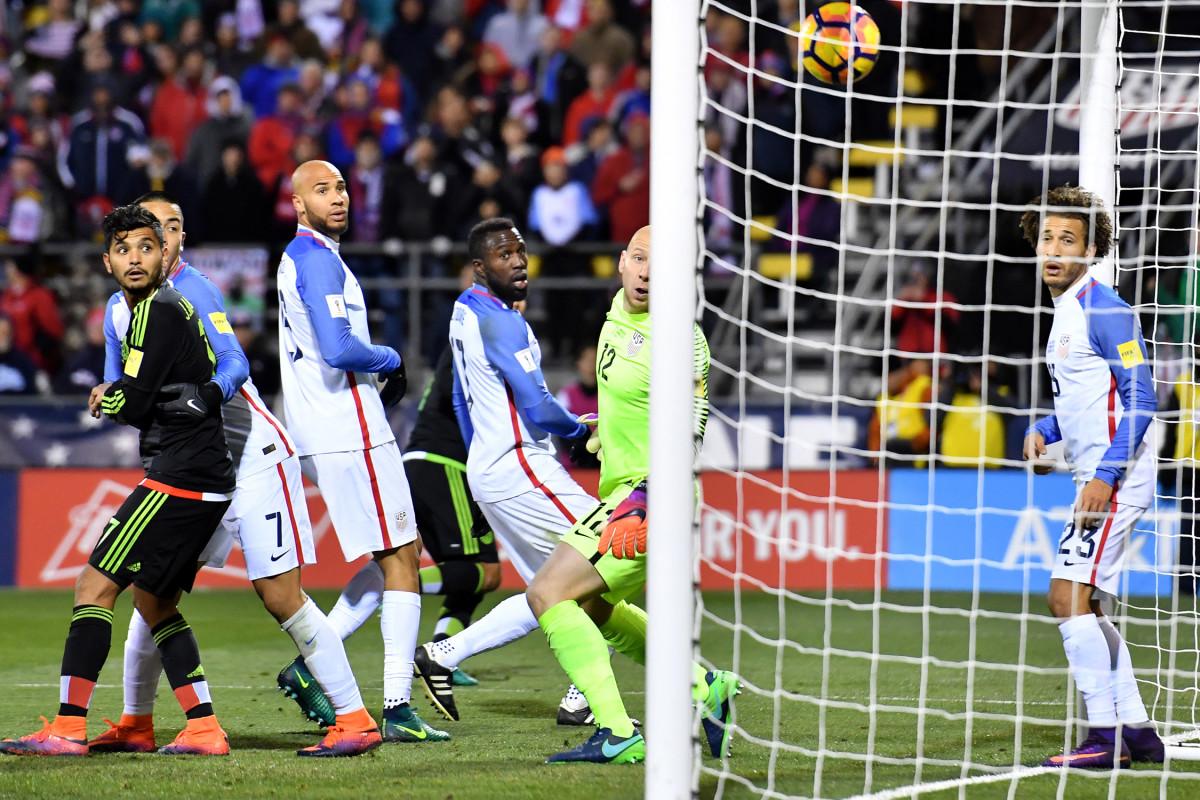
USA and Mexico players watch Rafa Marquez's 89th-minute header find the net in a famous World Cup qualifying win in Columbus for El Tri.
October 10, 2015 – Mexico 3, USA 2 (AET)
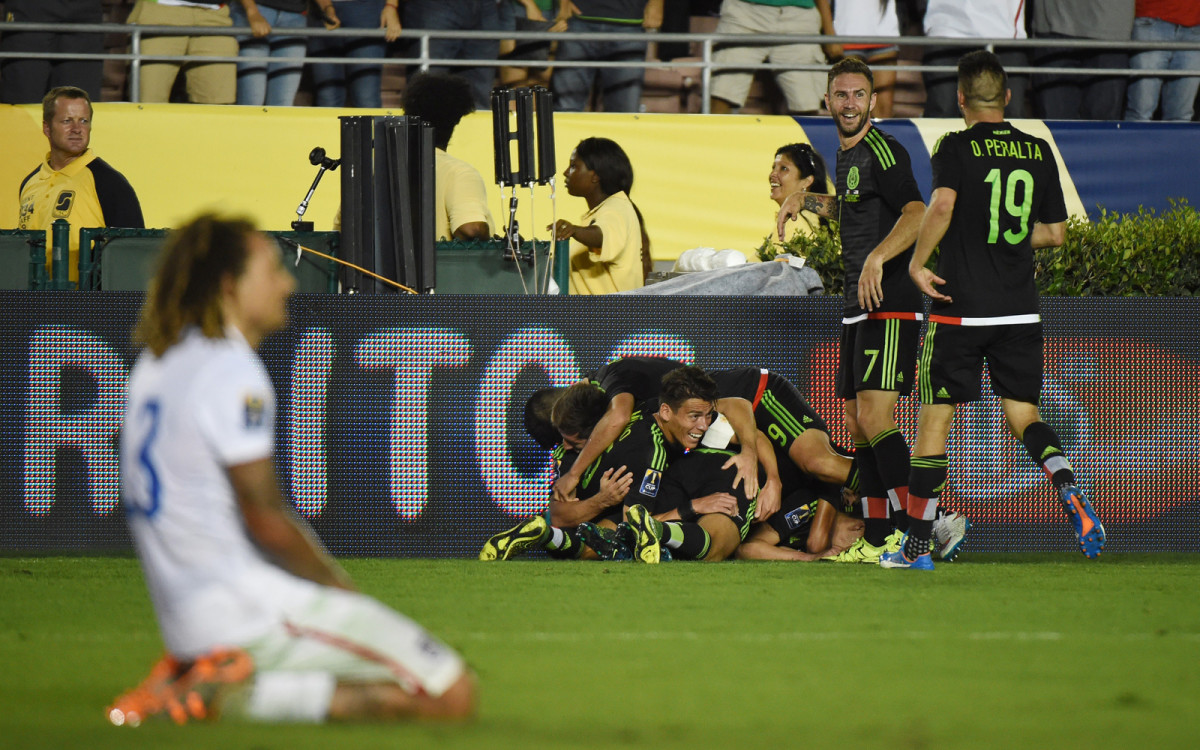
Jermaine Jones falls to his knees in disappointment as Mexico celebrates after Paul Aguilar's sensational volley in extra time captured the CONCACAF Cup for El Tri and sends the U.S. rival to the 2017 FIFA Confederations Cup.
April 15, 2015 — USA 2, Mexico 0
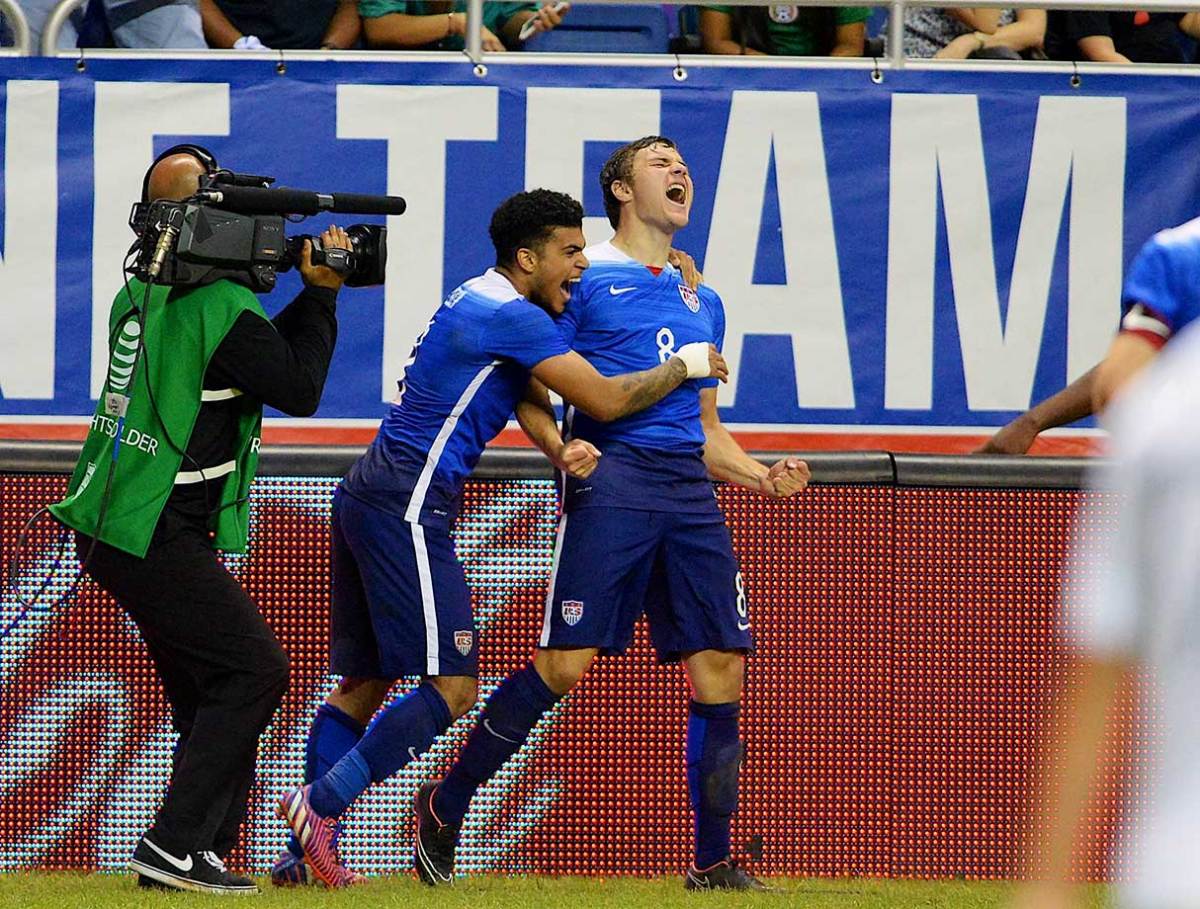
Stanford University's Jordan Morris marked his first senior national team start with his first international goal, sparking the USA in another 2-0 triumph over Mexico, this one at the Alamodome in San Antonio.
September 10, 2013 — USA 2, Mexico 0
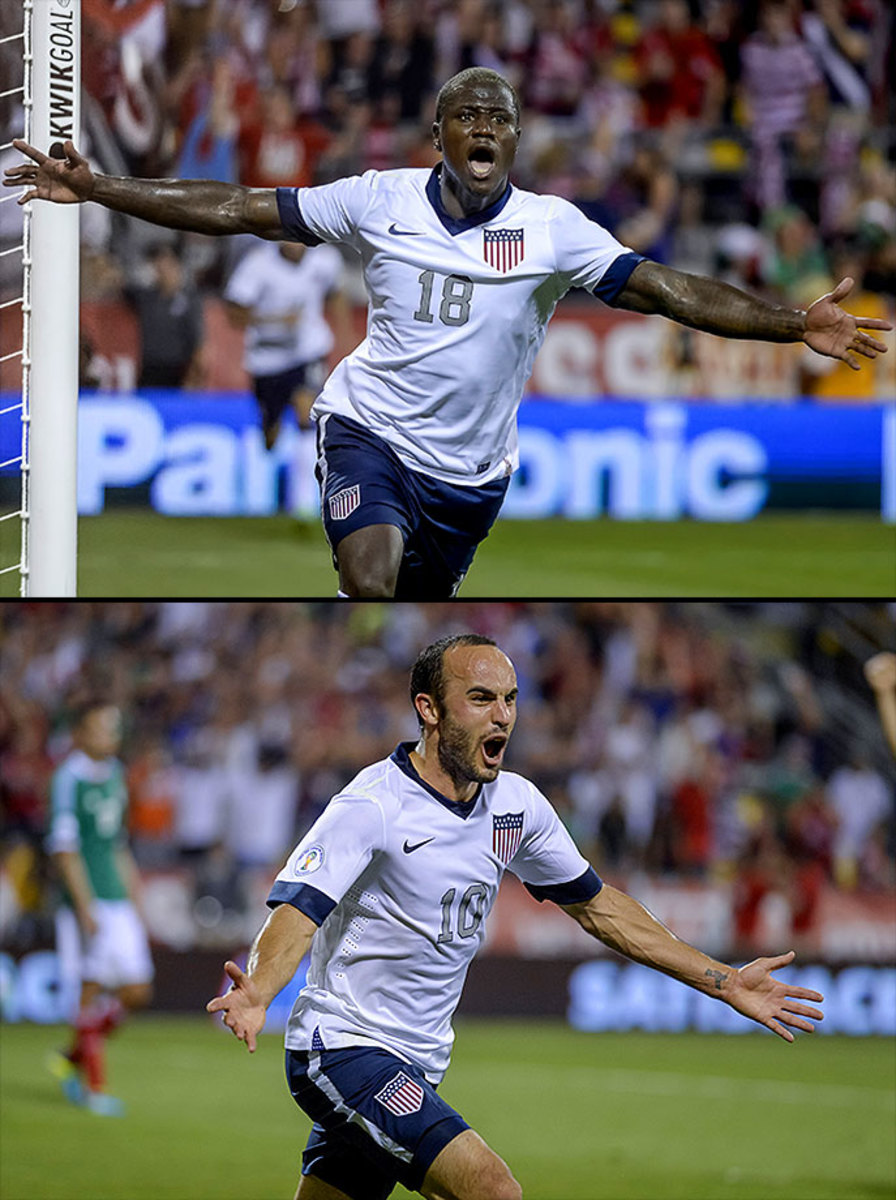
Eddie Johnson and Landon Donovan scored second-half goals to beat El Tri by the same score for the fourth consecutive qualifier in Columbus, Ohio.
March 26, 2013 — USA 0, Mexico 0
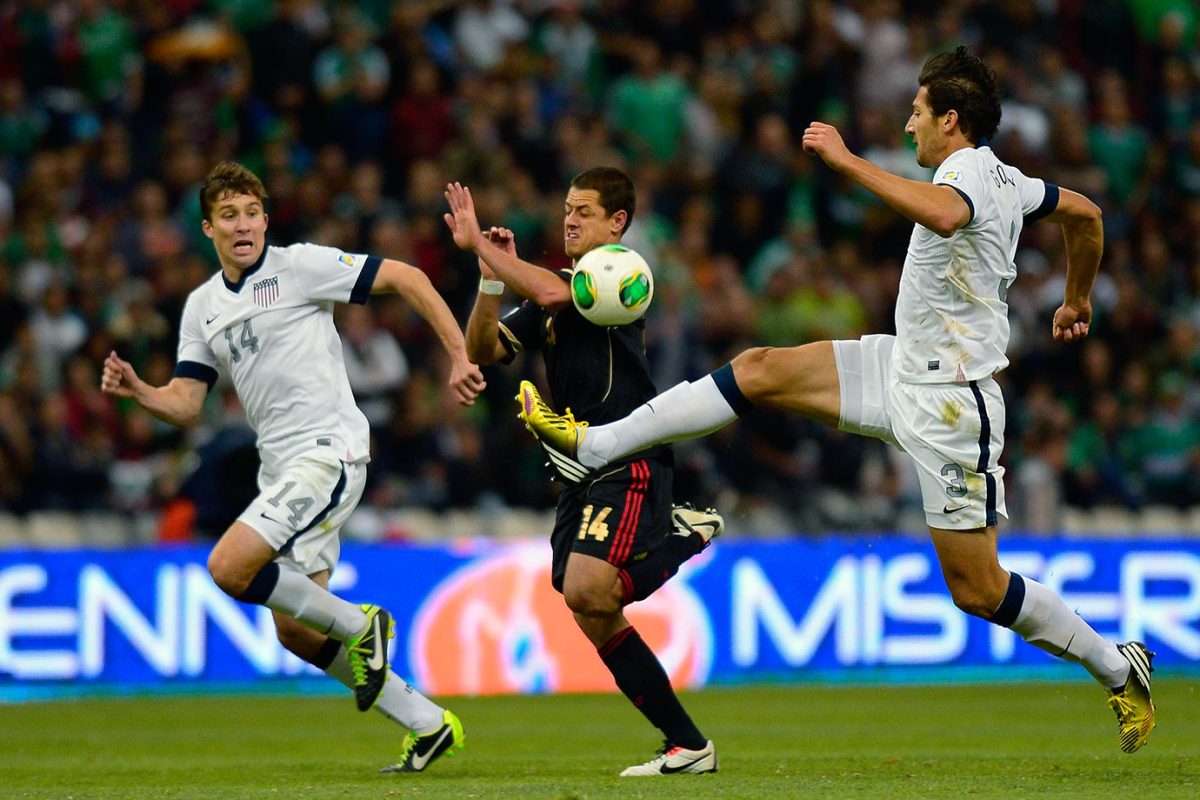
Clint Dempsey captained the U.S. to a 0-0 draw at Estadio Azteca, the second time ever the Americans registered a point in World Cup qualifying in Mexico (the other a 1997 tie). Defenders Omar Gonzalez and Matt Besler were the stars as Mexico couldn't cash in on several opportunities. The U.S. escaped to remain in second place in CONCACAF qualifying.
August 15, 2012 — USA 1, Mexico 0
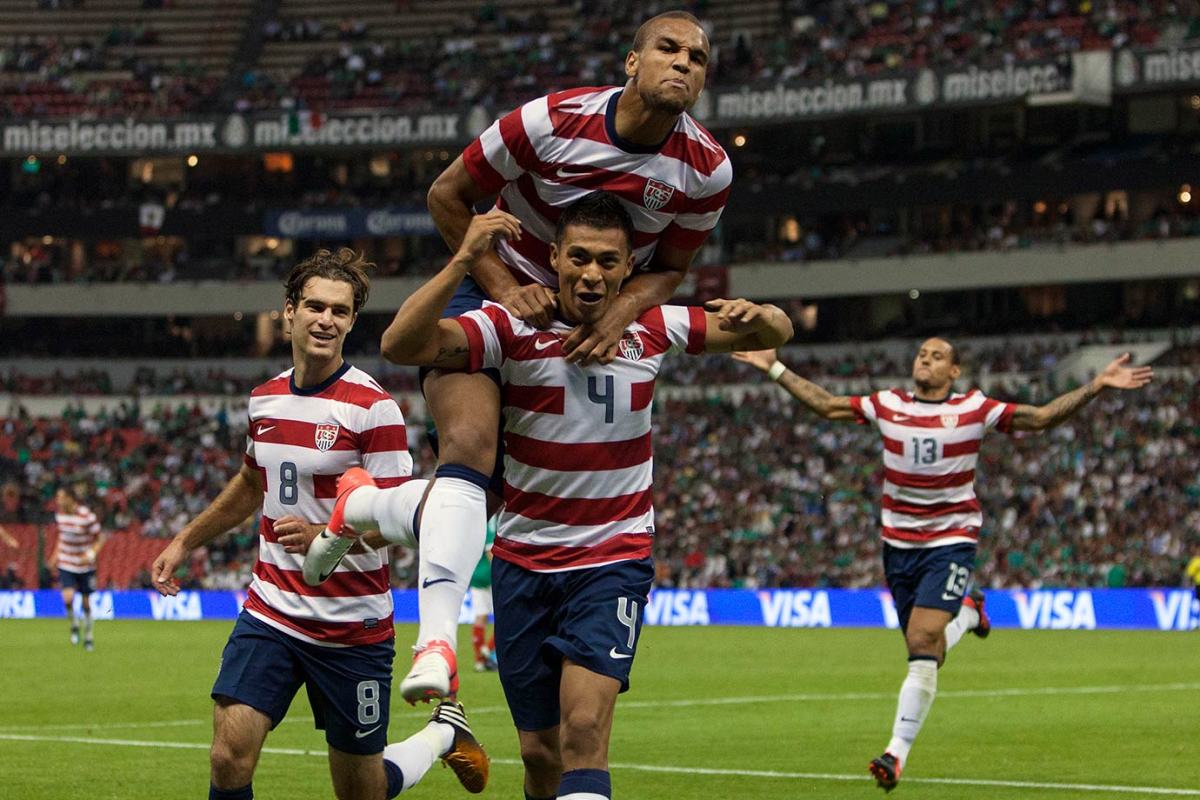
It took 25 attempts, but after this friendly, the United States could finally say that it had won at Mexico City's Azteca Stadium. Despite being outplayed for most of the match, the U.S. won thanks to an 80th-minute goal from Michael Orozco Fiscal — the first international goal of his career.
August 10, 2011 — USA 1, Mexico 1
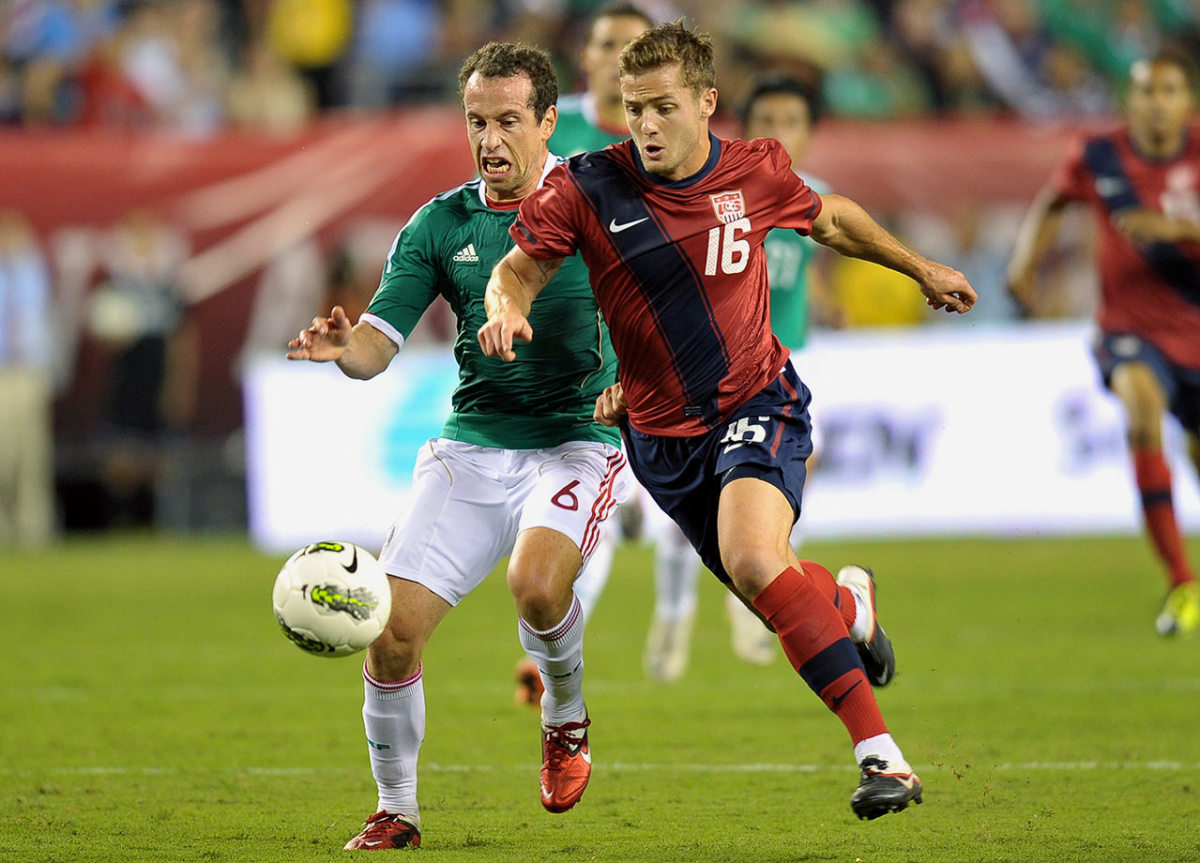
Head coach Jurgen Klinsmann's U.S. debut got off to a rough start, as the Americans trailed Mexico, 1-0 after an uninspired first half in Philadelphia. The U.S. showed more verve after halftime, though, and an impressive display from Brek Shea and a 73rd-minute goal from Robbie Rogers led to a 1-1 draw.
June 25, 2011 — Mexico 4, USA 2
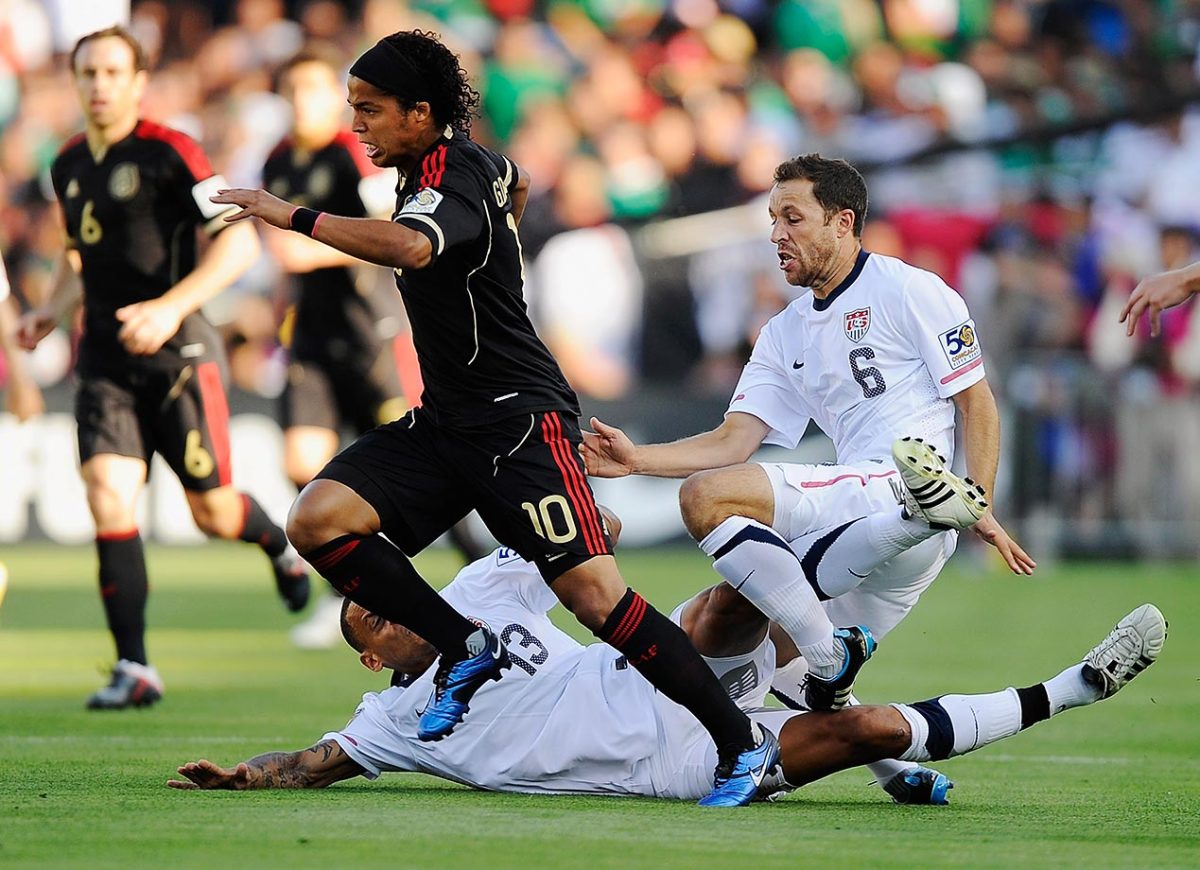
In the Gold Cup final, Mexico captured its second straight title in the battle for CONCACAF bragging rights and secured a berth in the 2013 Confederations Cup. Pablo Barrera scored twice; Giovani Dos Santos and Andres Guardado also had goals. The U.S. was up 2-0 early on Michael Bradley and Landon Donovan goals, but poor defending (partially due to the loss of Steve Cherundolo by injury) doomed the Americans.
August 12, 2009 — Mexico 2, USA 1
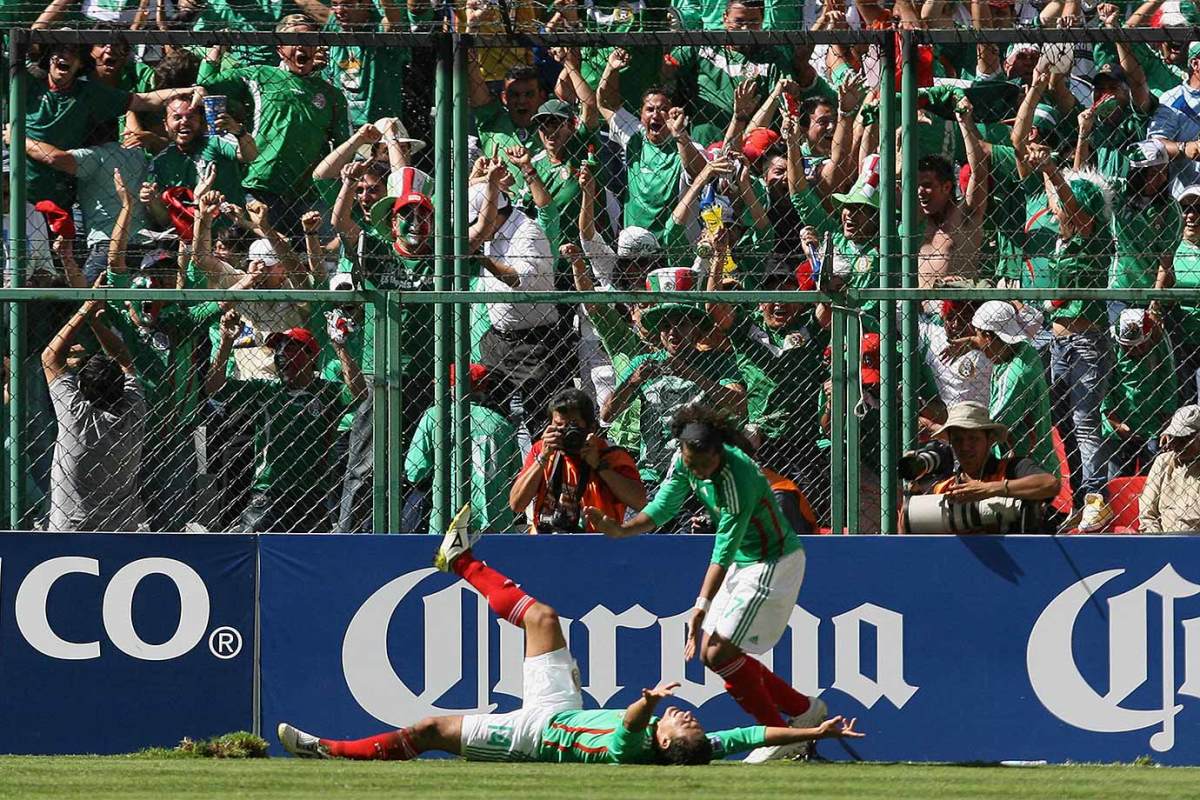
The U.S. took its first-ever lead at Azteca Stadium, but went on to lose 2-1 in what was a critical World Cup qualifier for Mexico. The win changed the tide for the then-struggling Mexican squad, as it went on to go 3-0-1 in its next four matches to earn a trip to South Africa. The U.S. still went on to finish first in CONCACAF qualification.
July 26, 2009 — Mexico 5, USA 0
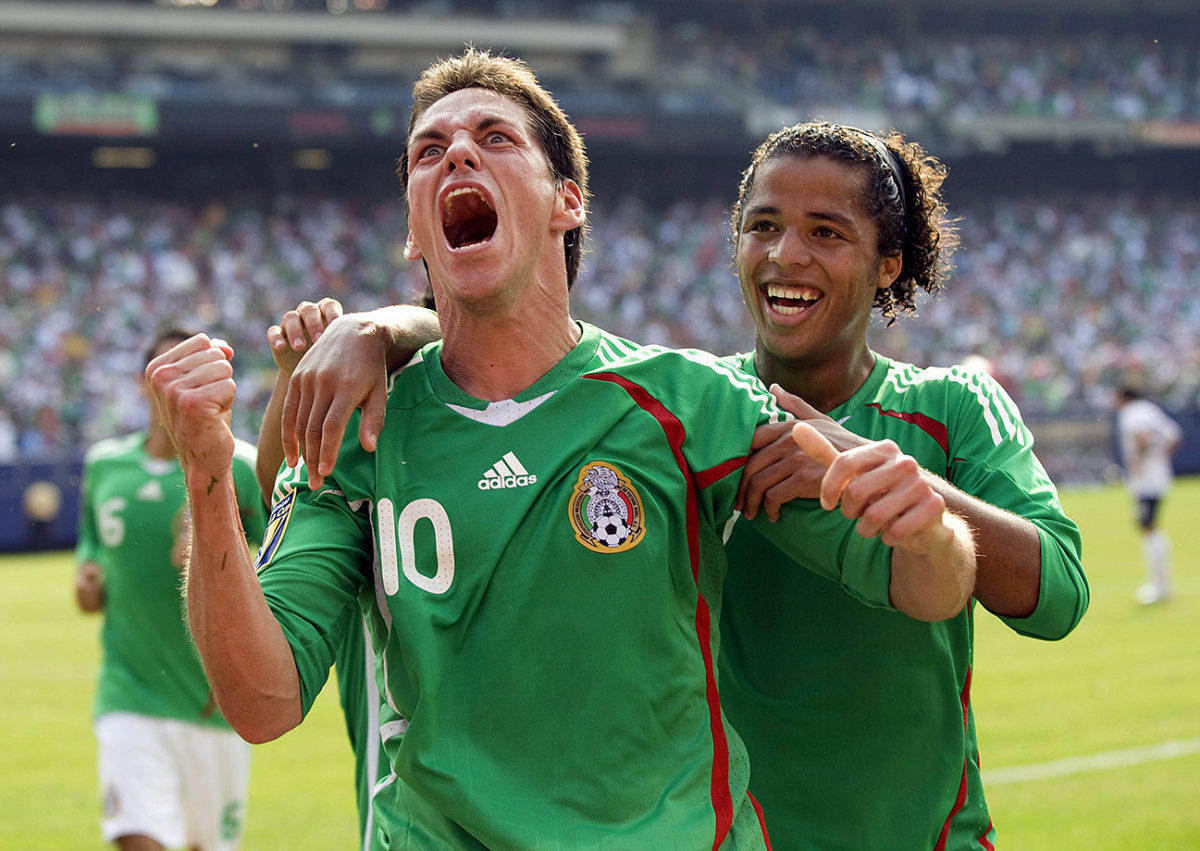
Mexico put an emphatic end to the Americans' 9-0-2 home streak against "El Tri." The Mexicans took the Gold Cup from the two-time defending champion, with five different players scoring goals in the second half at Giants Stadium.
February 11, 2009 — USA 2, Mexico 0
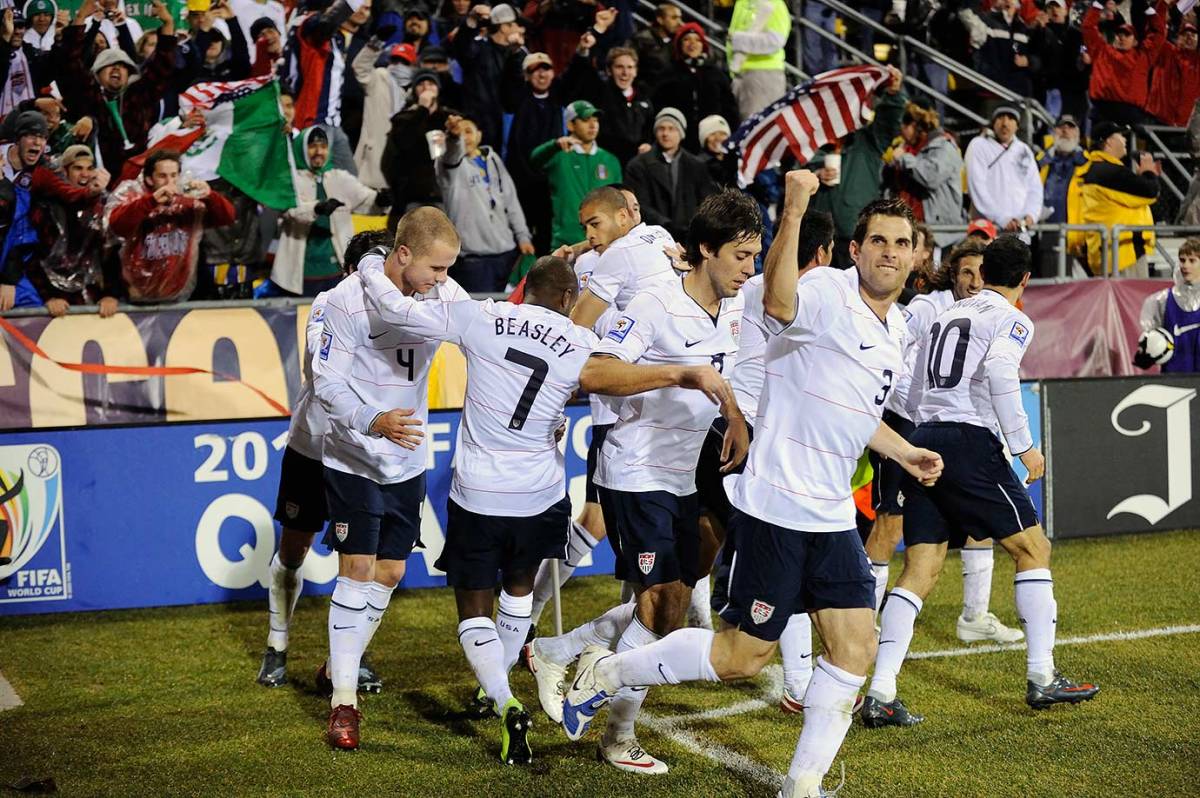
Two goals from Michael Bradley gave the U.S. another home victory over Mexico. It marked the eleventh consecutive time that the Americans had gone unbeaten against Mexico when playing on U.S. soil.
June 24, 2007 — USA 2, Mexico 1
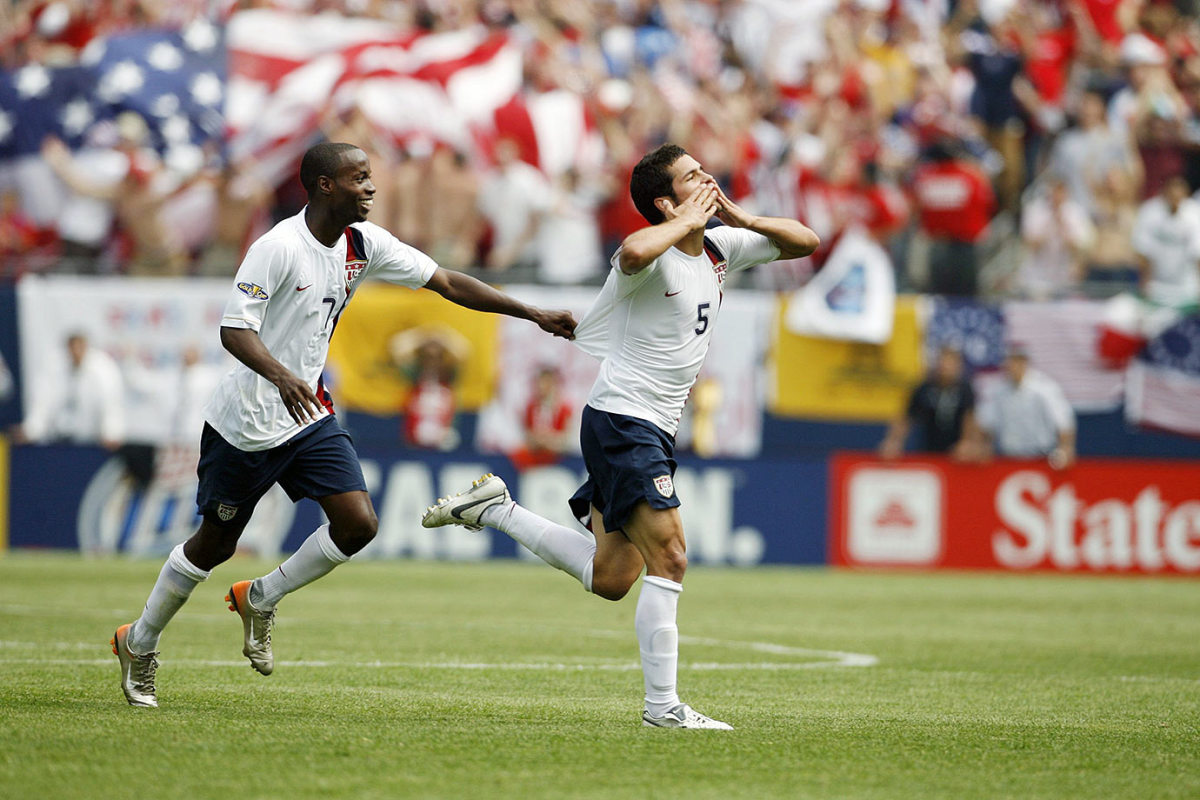
Down 1-0, second-half goals from Landon Donovan and Benny Feilhaber gave the U.S. the victory in the 2007 Gold Cup finals. The win earned the Americans a spot in the 2009 Confederations Cup, where they achieved their famous upset over Spain.
September 3, 2005 — USA 2, Mexico 0
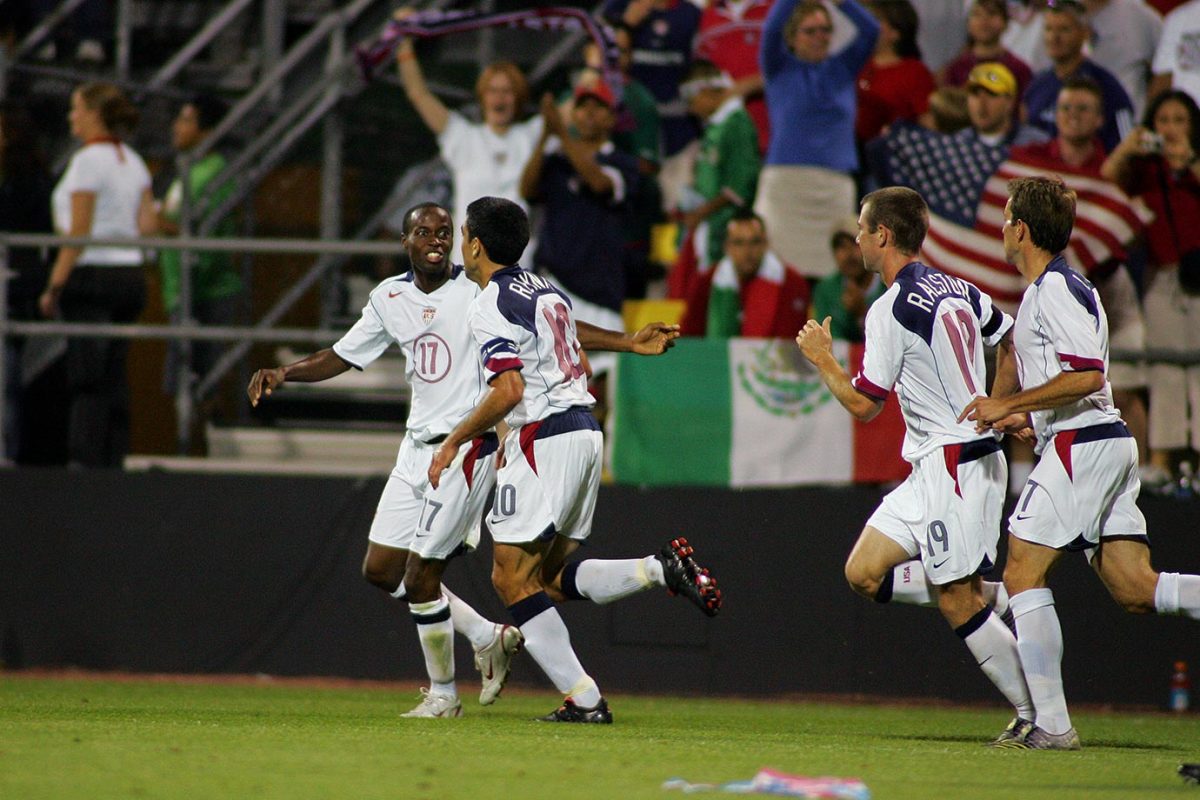
A 2-0 victory over "El Tri" clinched a spot in the 2006 World Cup, with goals coming from Steve Ralston and DaMarcus Beasley.
May 8, 2003 — USA 0, Mexico 0
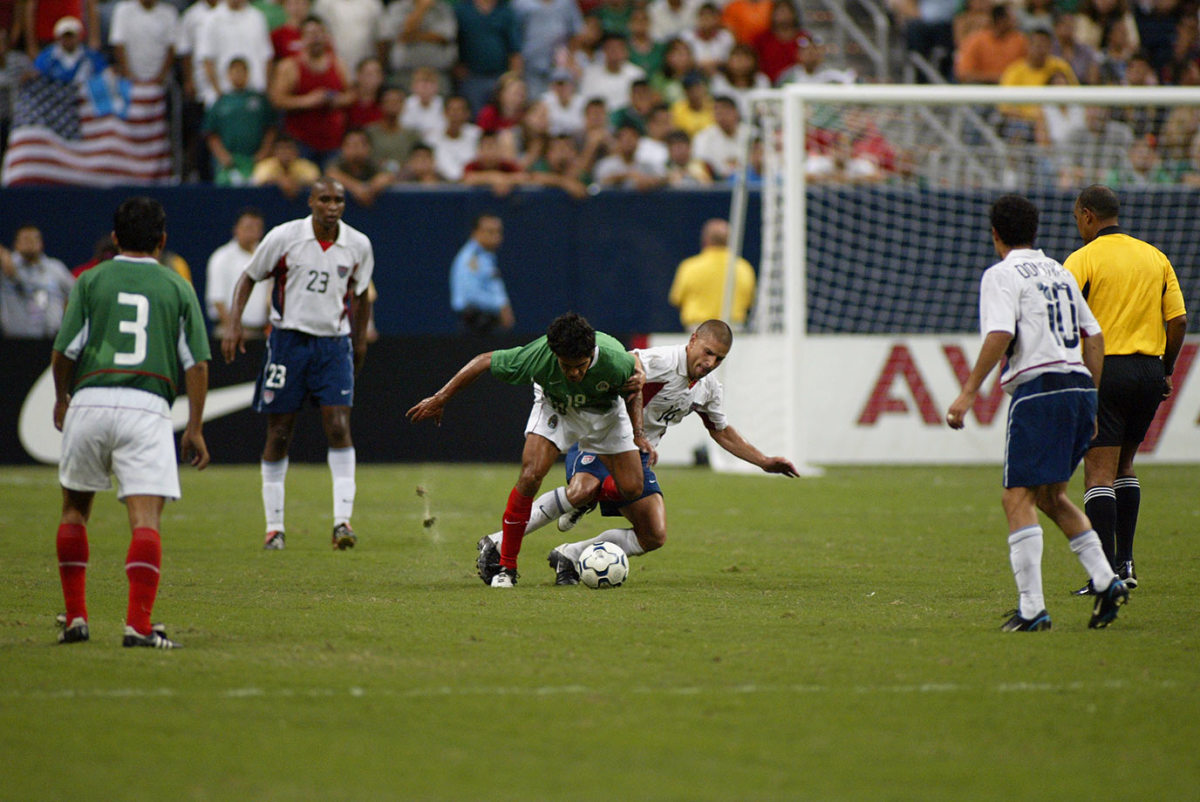
In their first meeting since the 2002 World Cup, an all-MLS squad of Americans played Mexico to a 0-0 draw in front of more than 69,000 people in Houston.
June 17, 2002 — USA 2, Mexico 0
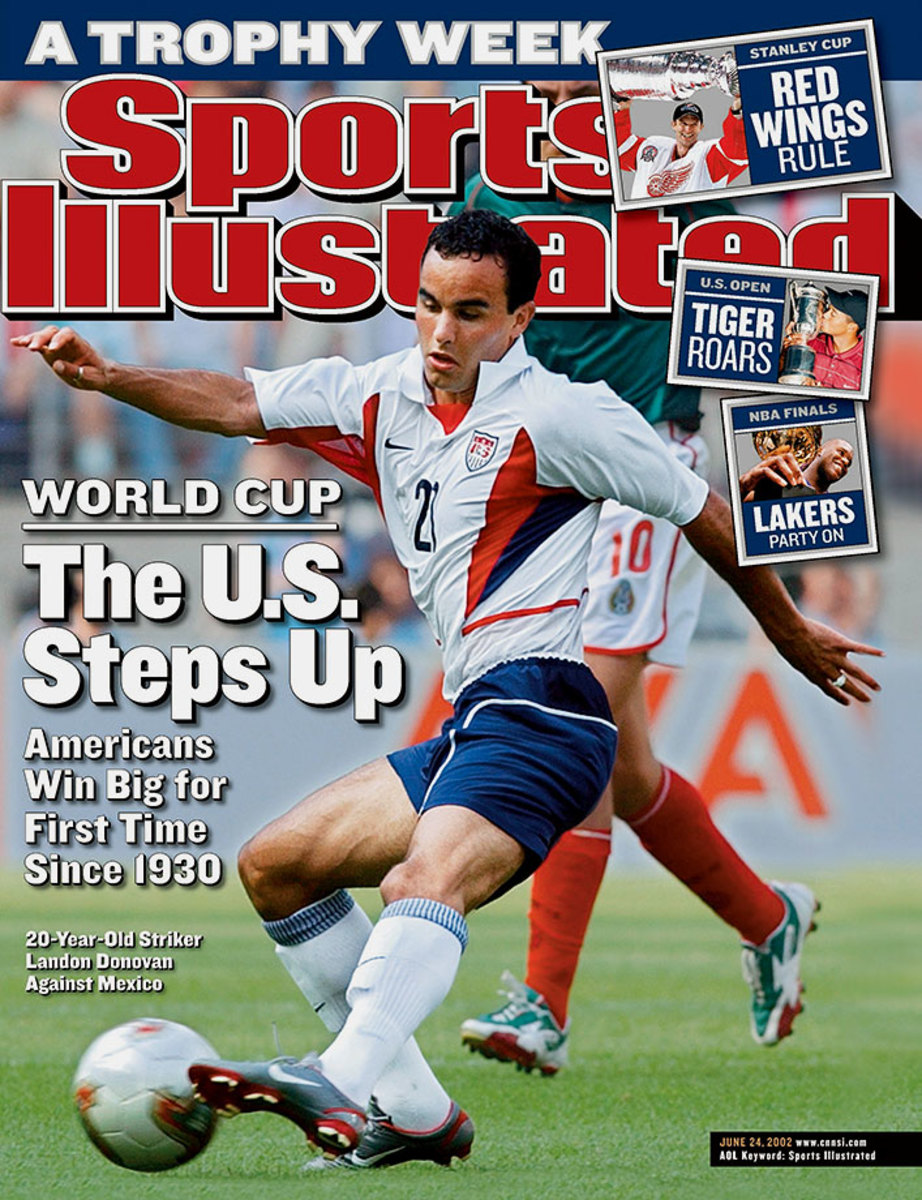
Arguably the biggest win in U.S. soccer team history came against its archrivals at the 2002 World Cup. Brian McBride and Landon Donovan gave the Americans a 2-0 victory in South Korea to send their team to the quarterfinals. It is the furthest stage the team has reached in the World Cup since 1930.
July 1, 2001 — Mexico 1, USA 0
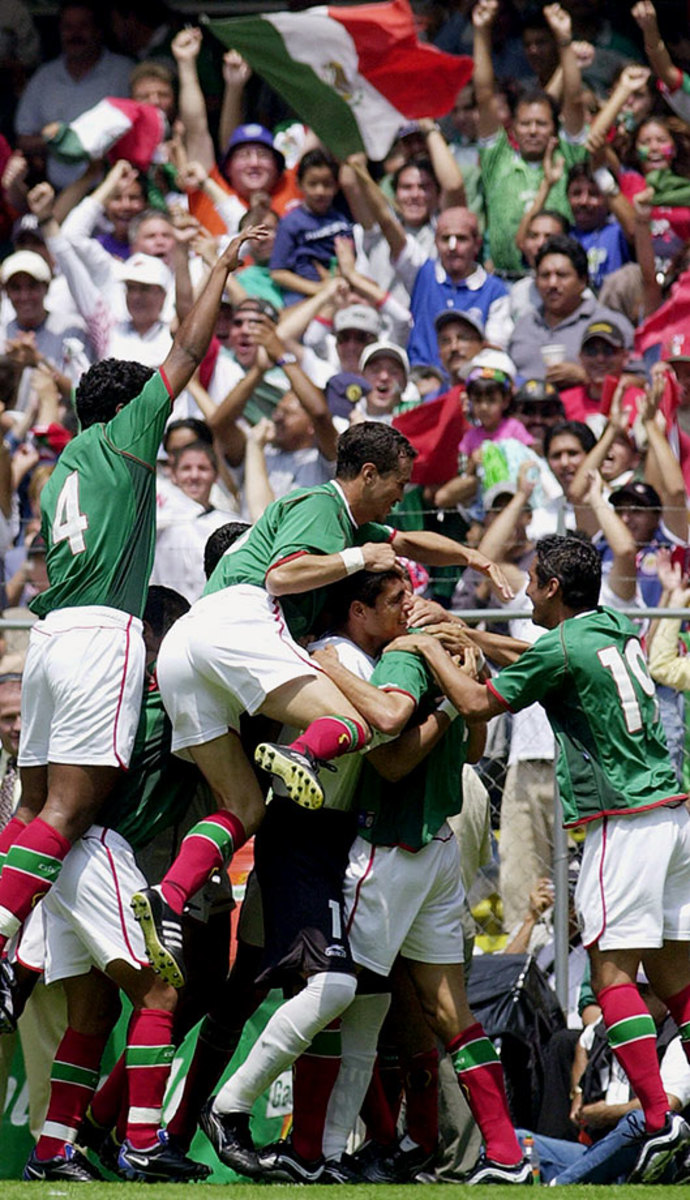
Needing a win to stay in contention for the 2002 World Cup, the Mexicans won 1-0 at Azteca Stadium, making their record 21-0-1 when hosting the Americans.
February 28, 2001 — USA 2, Mexico 0
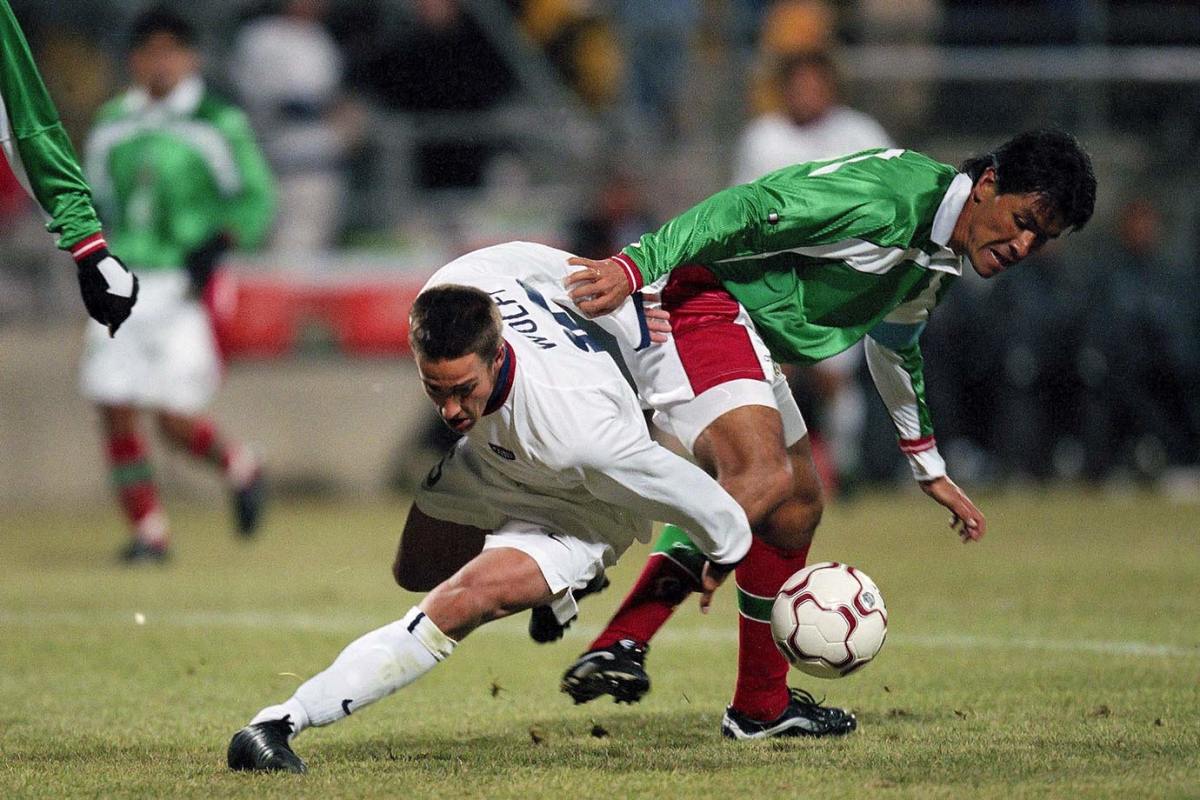
For the first time ever, the Americans won their third consecutive game against Mexico. The victory came in the World Cup qualifying finals and was held in Columbus, Ohio.
August 1, 1999 — Mexico 1, USA 0
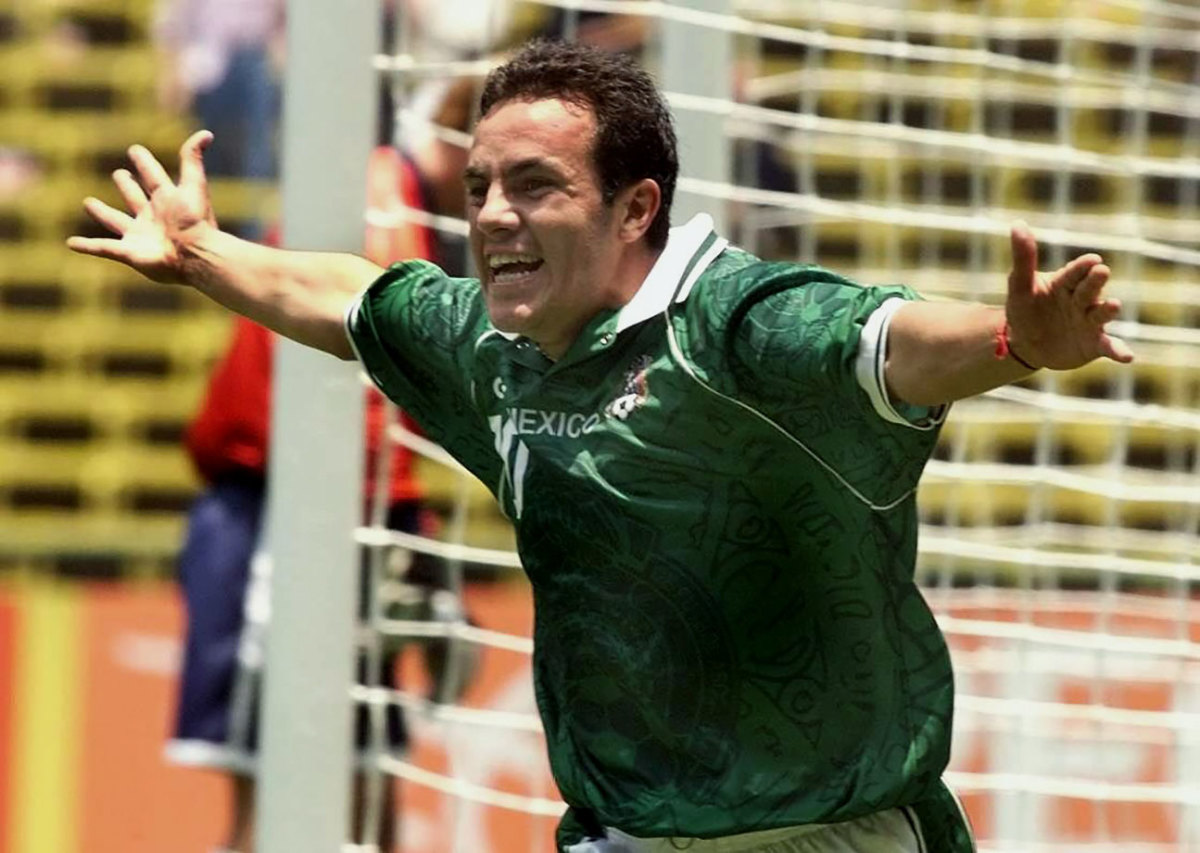
Cuauhtemoc Blanco's goal in extra time eliminated the U.S. in the semifinals of the 1999 Mexico City Confederations Cup. The win capped off a long tradition of Mexican dominance over the American side, a streak that shortly thereafter ended, as the Americans won the next three matches against their rivals.
July 17, 1995 — USA 0, Mexico 0
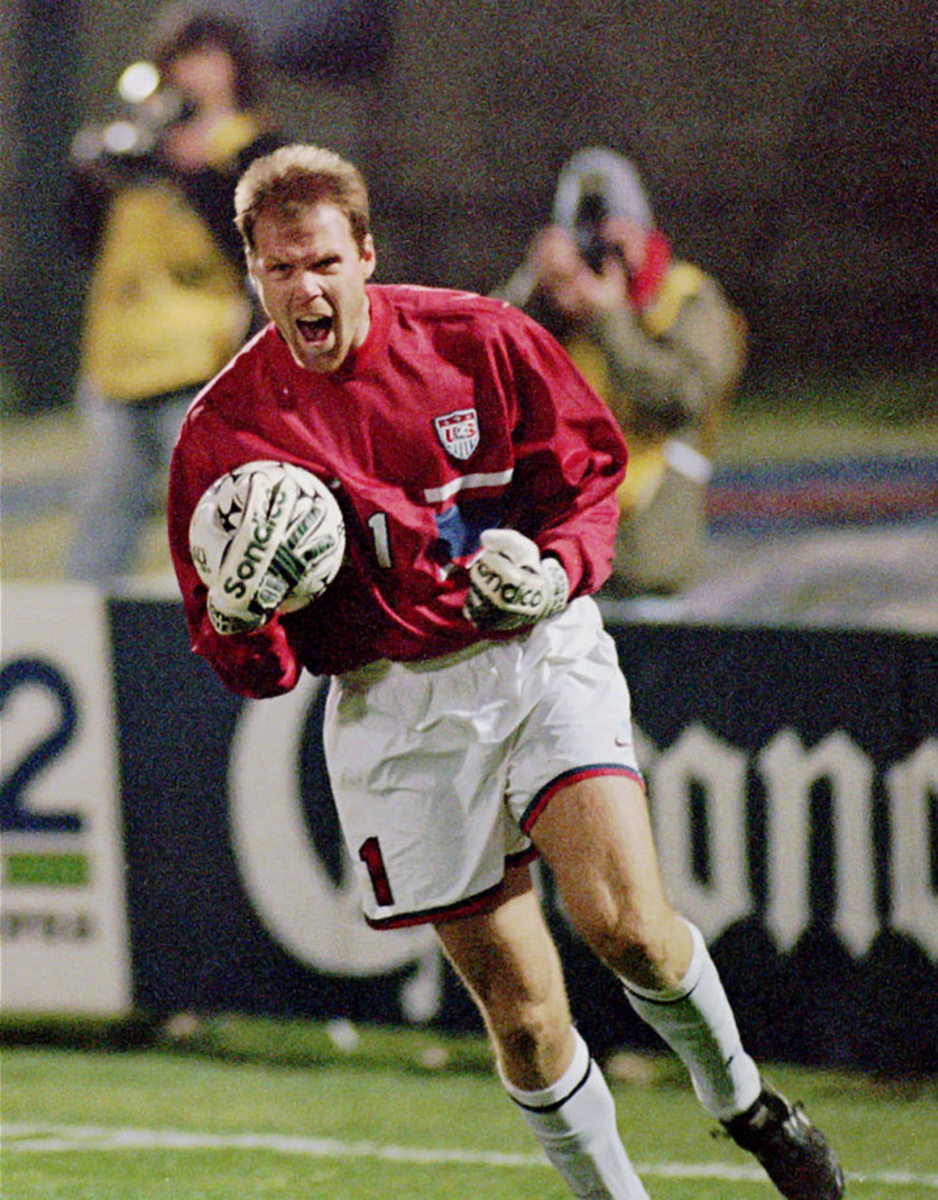
The USA outlasted Mexico in a penalty shootout to reach the semifinals of the 1995 Copa America. After a 0-0 draw, goalkeeper Brad Friedel was the hero in PKs, making two saves. The U.S. made all four of its attempts and advanced.
